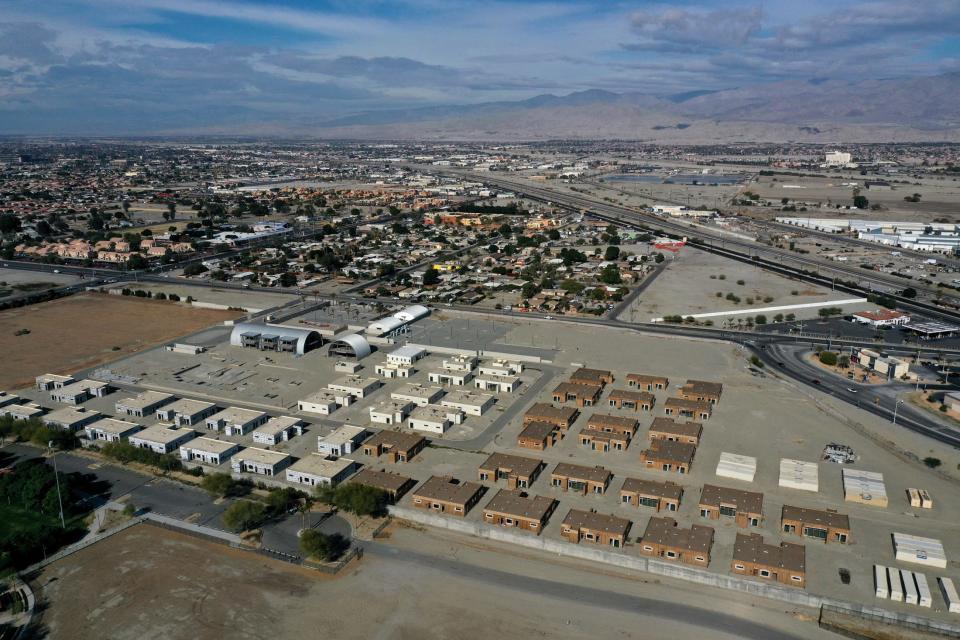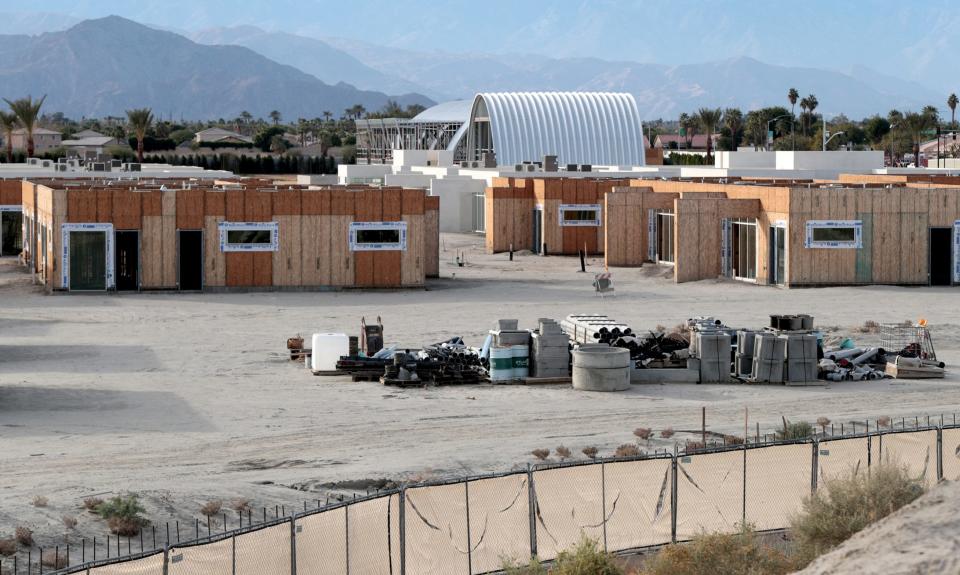Coachella City Council opposes 'recovery village,' citing economic impact

The Coachella City Council on Wednesday decided to oppose building a 450-bed "recovery village" for people struggling with substance abuse and mental health issues that had been mapped out for the city by the Riverside University Health System's Behavioral Health Department.
The facility would provide assistance and temporary housing to people in Riverside County, and the county last year proposed developing the project off Avenue 48 in Coachella with the use of state grant funding.
But during a recent special meeting, council members expressed doubts that the city can accommodate a project of that size, meant to serve residents and non-residents. In a council meeting Wednesday, they formally voted 4-0 against it. Mayor Pro Tem Neftali Galarza excused himself from the meeting early and did not vote on the item.

"My concern and a lot of the council members' concern here is that it's a large project and will impact the city significantly in terms of drawing our resources — be it public safety, be it public infrastructure, or the loss of economic development revenue and (transient occupancy tax) revenue," Mayor Steven Hernandez said.
The recovery village is envisioned to be developed on the site of what would have been Coachella's first hotel. The project fell through in 2020, when the hotel developer claimed he was millions of dollars in debt after the project’s budget was squandered through “incompetence and fraud” and sued his business partners for $50 million.
Previously, City Manager Gabriel Martin had told The Desert Sun that the city would be OK with the recovery village project so long as the county did something to make the city "economically whole," as a hotel project would have. "It was supposed to generate a lot of tax revenue for the city in regards to property, sales and TOT tax," he said of the hotel.

Martin estimated a hotel would generate $148 million in tax revenue for the city over the next 50 years.
"Being that there is no subvention that's being offered and willingness to make the city whole, that is (my) position ... that I can't support this," Hernandez said at the meeting.
Councilmember Denise Delgado added that the city had provided millions in funding for development at the proposed site and said that was a "huge loss" at this point.
"I want to make sure our residents understand how much has been given to this site and how much of a loss it (would be) to them if we don't get some type of commercial development there or if the county can't commit to (making up) some of the losses," she said.
Councilmembers Stephanie Virgen and Frank Figueroa agreed, with Virgen noting that the council was not opposed to behavioral health services in the city, but rather other potential impacts of the recovery village.
Ahead of the council's vote, city staff read aloud a handful of public comments submitted on the matter. It was unclear whether all were from residents of the city, but they were all in support of the recovery village.
One of the comments was from Yurema Arvizu, a Coachella resident who ran for city council in the latest election in November but failed to secure a seat.
"The community would benefit from an expansion in services for mental health and substance abuse, especially for low-income residents who are constantly put on a waitlist as the need grows," Arvizu wrote.
Other members of the public noted that the facility would create "hundreds of new jobs for the community," in addition to providing "much-needed resources for those struggling with mental health issues."
While campaigning, Arvizu said she wanted the city to work with Riverside County to see the behavioral health campus become a reality.
The county could still move forward with the project despite the city council's stance and will make a decision during its next county board of supervisors meeting scheduled for Feb. 7.
Eliana Perez covers the eastern Coachella Valley. Reach her at eliana.perez@thedesertsun.com or on Twitter @ElianaPress.
This article originally appeared on Palm Springs Desert Sun: Coachella City Council opposes housing 'recovery village'

